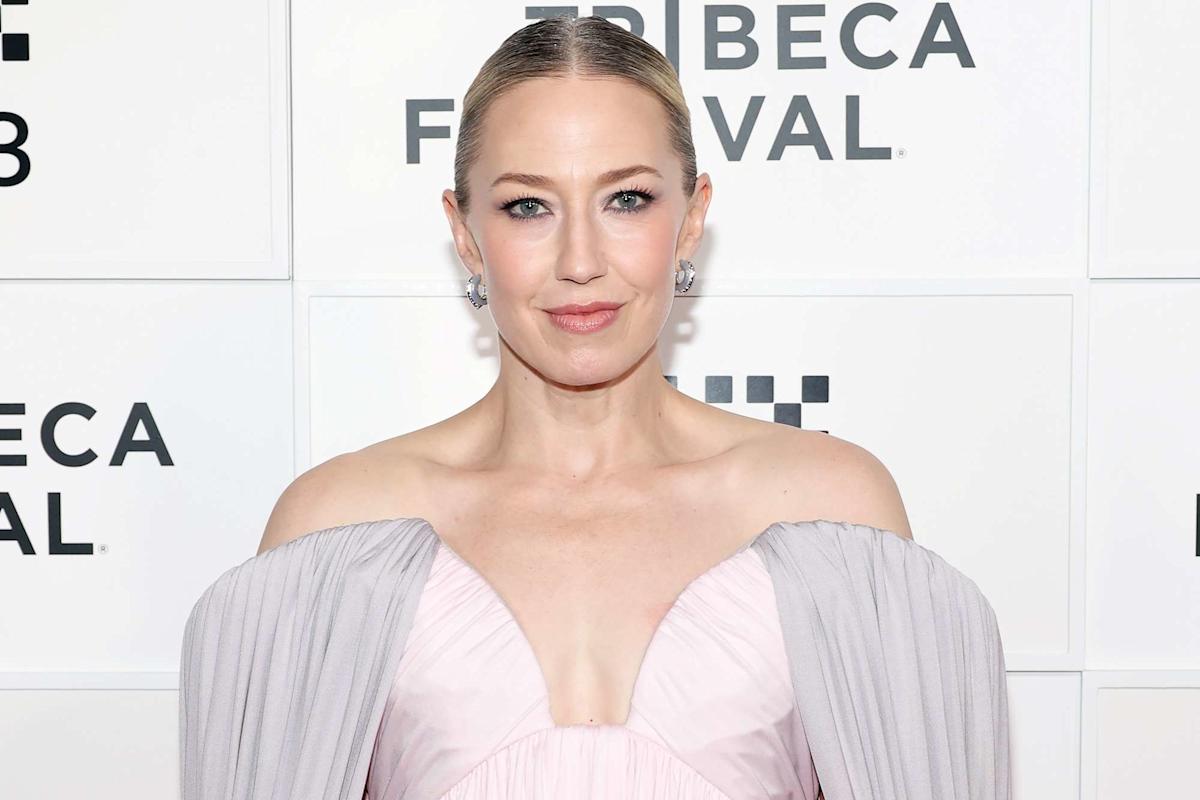Carrie Coon, a talented actress known for her roles in various acclaimed series, like The White Lotus, recently shared her candid thoughts about conversing with Trump supporters during an appearance on The View. She expressed a sentiment that many might share: the difficulty of engaging in meaningful discussions with individuals whose beliefs seem rooted in a narrative devoid of factual basis. For Coon, this issue resonates deeply, and she draws parallels between her personal experiences and her character in The White Lotus, in which she navigates complex social dynamics and political tensions.
During her interview, Coon opened up about her upbringing in Ohio, where discussions around Trump used to occur among her family members. Although she clarified that these conversations didn’t involve her immediate family, the implications of her statement were clear. She spoke of a broader challenge—being able to connect with friends and acquaintances who support Trump, where discussions about current events can devolve into confusion and frustration due to a lack of common ground in facts.
Coon articulated a concern shared by many: the environment has shifted so dramatically that engaging in discourse has become a formidable challenge. "When you’re in an authoritarian slide, it becomes a closed system," she remarked. This observation reflects a broader societal issue, emphasizing the impact of a singular narrative on individuals’ understanding of the world around them. For Coon, the challenge is compounded by an overwhelming need for factuality in discussions—they become lost when faced with misinformation and an insular worldview.
She elaborated on the dangerous implications of such an environment, highlighting how certain narratives can easily lead communities to blame others for their distress. According to Coon, it has become commonplace to redirect anger at immigrants or marginalized groups while failing to recognize that their struggles often come from economic forces far beyond their control. "It’s very easy to teach them that they should blame immigrants or trans people while billionaires are picking their pockets," she said. This powerful statement reveals her understanding of the intricate ways socio-political narratives can manipulate public perception and stifle genuine inquiry.
In her performance on The White Lotus, the themes surrounding political discussion are further echoed. In a particularly poignant scene, her character, Laurie, confronts her friends about their differing political views during a tense dinner conversation. This scripted moment captures an uncomfortable reality many confront in their personal lives. In a world where political affiliations can create rifts among long-standing friendships, Coon’s character recognizes the challenge of reconciling personal relationships with deeply held beliefs.
The craft of storytelling often serves to mirror real-life situations. Within the series, Laurie and her friends are exposed to the absurdities and complications of navigating political beliefs intertwined with personal relations. Coon’s portrayal highlights that while friendships can endure, the tensions arising from political differences often necessitate difficult conversations that can feel perilous to initiate.
Coon’s contemplative approach may resonate with audiences who are navigating similar discussions in their own lives. The struggle to speak openly, especially with those entrenched in contrasting beliefs, can become an overwhelming barrier to understanding. Like Coon, many individuals find that previously stable relationships can buckle under the weight of ideological differences.
As the complexities of modern political discourse continue to evolve, Coon’s input serves as a reflection of a broader reality. The repeated refrains of misinformation and the retreat into ideological echo chambers can suffocate dialogue, leading to feelings of isolation and frustration among those yearning for honest, fact-based conversation. With science facing challenges during a time when facts should be central, Coon’s perspective raises essential questions about society’s trajectory.
The juxtaposition of personal experiences with broader societal predictions is an art form in itself. Coon’s interviews and her work in The White Lotus interweave these themes, revealing the struggles that many endure in daily interactions. While issues like immigration and wealth disparity dominate media narratives, the personal relationships that originate in such environments become poignant battlegrounds.
Coon’s recent insights provide a clear call for more heartfelt engagement. People often find themselves at odds with loved ones, struggling to understand disparate political viewpoints. When one feels caught within a closed system of information, the urgency for fact-based dialogue becomes more evident than ever.
The closing sentiments of Coon implies hope, suggesting the possibility for friends and family to maintain connections despite differing views. Finding common ground amidst disbelief requires patience, love, and perhaps a shared commitment to open, honest communication. Perhaps if we lean into our differences, we could foster true understanding and perhaps even a bridge across the political divide.
What remains crucial in navigating these waters is the dedication to truth and transparency. While it may be challenging, the pursuit of factual discussions can illuminate paths toward understanding that might be obscured by entrenched ideologies. And as Coon suggests in her reflections, the relationship between facts and narrative cannot be overstated—ultimately, it’s a dialogue worth pursuing.
In a world that often feels divided, maintaining the ability to communicate across political lines is vital. Whether in casual gatherings or more structured discussions, how we approach these conversations matters deeply not only for our relationships but for the broader societal landscape. As Coon highlights, while it may sometimes feel impossible, the hope for sincere dialogue remains essential. Building conversations grounded in truth, empathy, and respect may be the key to opening pathways forward.









